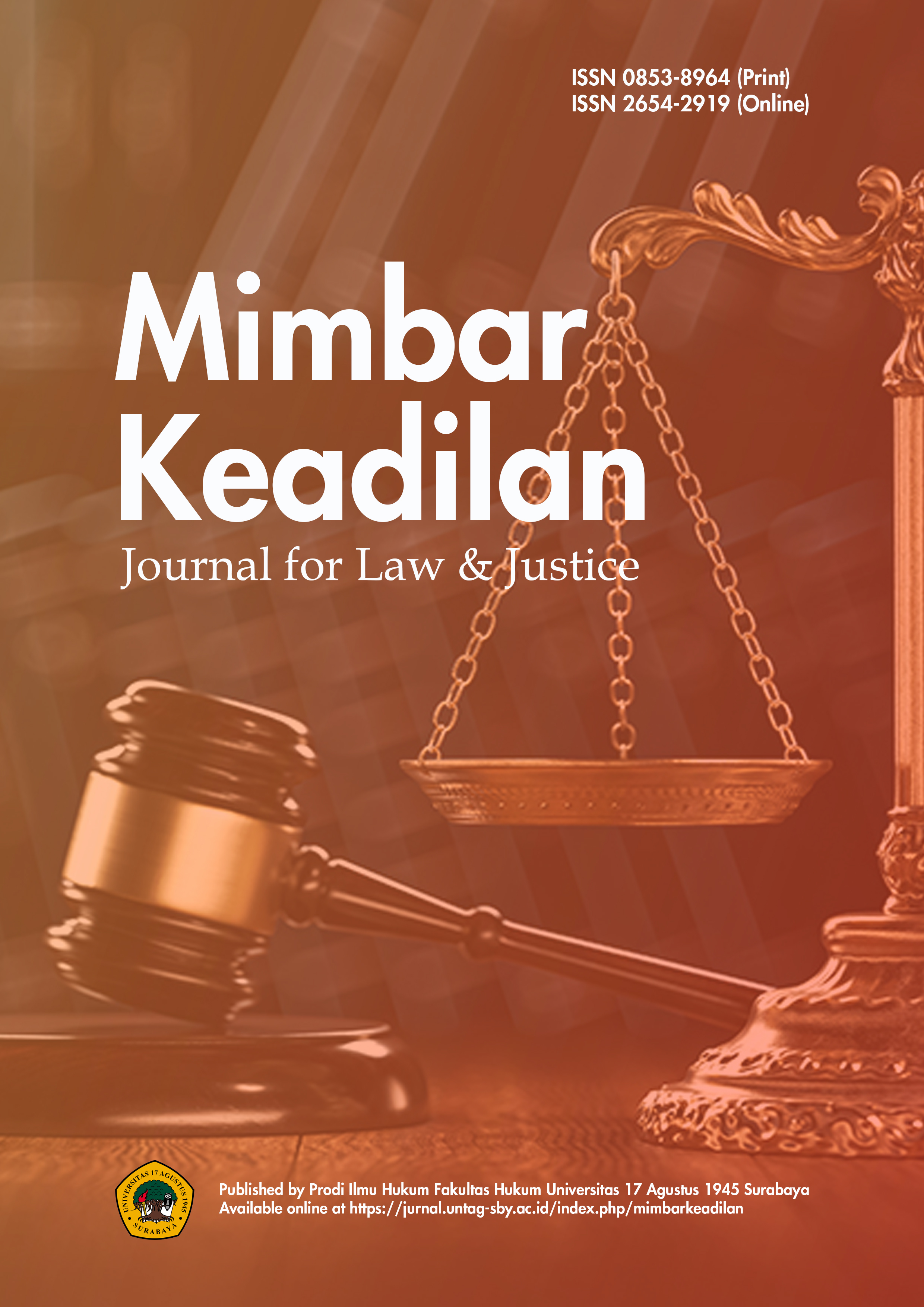Legal Certainty in the Decisions of the Honorary Council of the Constitutional Court: A Case Study of Chairman Anwar Usman's Ruling
DOI:
https://doi.org/10.30996/mk.v17i2.11012Keywords:
Violation, Code of Ethics, Constitutional CourtAbstract
The existence of the Constitutional Court in the life of the nation and state is in order to guarantee and prove the existence of positive law, especially laws, so that these laws remain in accordance with the constitution so that later the constitutional rights of citizens can be maintained. The purpose of this research is as evaluation material and learning material for law enforcers, students and other parties. This type of research is included in the juridical-normative category, namely research carried out by examining theories, concepts, legal principles and regulations that are appropriate and related to the object of research. The Constitutional Court decision that has been issued against Anwar Usman cannot be challenged in the State Administrative Court because the Constitutional Court's decision is not a state administrative decision so it does not fall within the scope of what can be litigated in the state administrative court. Another reason that could be the basis for approval or inaccuracy of the State Administrative Court's lawsuit in relation to the Constitutional Court's decision is related to the ad hoc nature inherent in the Constitutional Court. Compliance with ethical standards in the decision-making process in law enforcement agencies is a crucial element in maintaining the trust and reputation of state administration in the eyes of the public. The presence of ethical standards in the Constitutional Court is considered the basis for upholding constitutional principles which are moral and behavioral guidelines for all members of the judiciary.
Downloads
Downloads
Published
Issue
Section
License
Authors who publish with Mimbar Keadilan agree to the following terms:
- Authors transfer the copyright and grant the journal right of first publication with the work simultaneously licensed under a Creative Commons Attribution-ShareAlike 4.0 International License.. that allows others to share the work with an acknowledgement of the work's authorship and initial publication in this journal.
- Authors are able to enter into separate, additional contractual arrangements for the non-exclusive distribution of the journal's published version of the work (e.g., post it to an institutional repository or publish it in a book), with an acknowledgement of its initial publication in this journal.
- Authors are permitted and encouraged to post their work online (e.g., in institutional repositories or on their website) prior to and during the submission process, as it can lead to productive exchanges, as well as earlier and greater citation of published work (See The Effect of Open Access)














